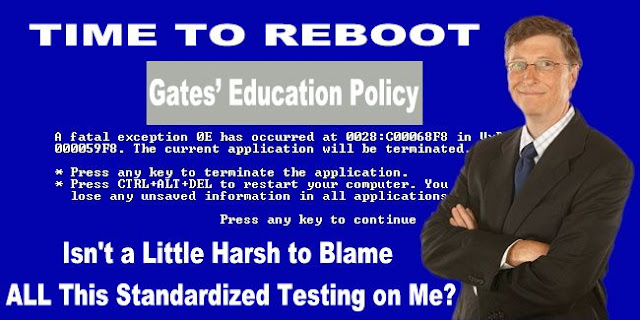Confirmed: Standardized testing has taken over our schools. But who’s to blame?
Who’s to blame?
A new two-year study on testing in U.S. big-city public schools reveals what many students, parents and teachers have been screaming about for years: Kids take too many mandated standardized tests. What’s more, there is no evidence that adding testing time improves student achievement, it says.
The average student in America’s big-city public schools takes some 112 mandatory standardized tests between pre-kindergarten and the end of 12th grade — an average of about eight a year, the study says. That eats up between 20 and 25 hours every school year, the study says. As for the results, they often overlap. On top of all that are teacher-written tests, sometimes taken by students along with standardized tests in the very same subject.
In 66 school systems studied by the Council of the Great City Schools, a nonprofit organization that represents the largest urban public school systems in the country, students in the 2014-15 school year sat over 6,500 times for tests, taking tests with 401 different titles. (See all the major findings below.)
High-stakes standardized testing has become a hallmark of modern school reform for well over a dozen years, starting with the use of these exams in the 2002 No Child Left Behind law to hold schools “accountable.” The stakes for these exams were increased with President Obama’s $4.3 billion Race to the Top funding competition, in which states could win federal education funding by promising to undertake specific reforms — including evaluating teachers by test scores and adopting “common standards.”
In early 2012, Robert Scott, a Republican who was then the commissioner of education in Texas, rocked the education reform world when he declared that school accountability systems based on high-stakes standardized tests had led to a “perversion” of what a quality education should be and he called “the assessment and accountability regime” not only “a cottage industry but a military-industrial complex.”
The new study, which looks at the testing practices of the big-city school systems, was ordered by the council’s board of directors in 2013 amid protests about the exams, which led to a national “opt-out” movement in which students refused to take standardized tests. The Common Core State Standards initiative — with new federally funded tests — only fueled the protests, which included teachers refusing to administer the tests and superintendents calling for a change in their states’ testing requirements.
The anti-testing rebellion became so loud that even some of the strongest proponents of testing started to say it was time to scale back on the number of assessments students must take. In August 2014, Education Secretary Arne Duncan said finally that he “shared” teachers’ concerns about too much standardized testing and test prep, and that he believed “testing issues today are sucking the oxygen out of the room in a lot of schools.”
This past spring, 20 percent of students in New York state opted out of mandated standardized tests, the scores of which are used to evaluate teachers through highly controversial assessment methods.
Stacie Starr — a ninth grade intervention specialist in Ohio who was selectedConfirmed: Standardized testing has taken over our schools. But who’s to blame? - The Washington Post:

